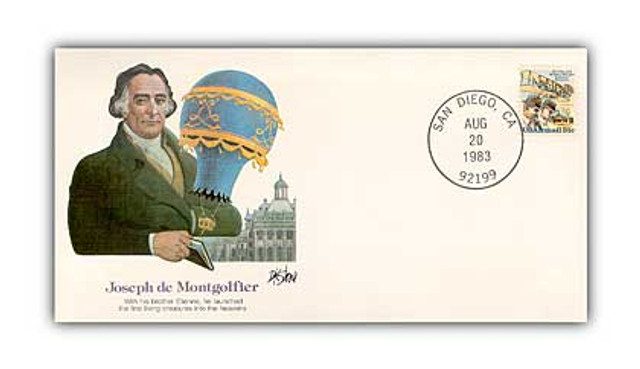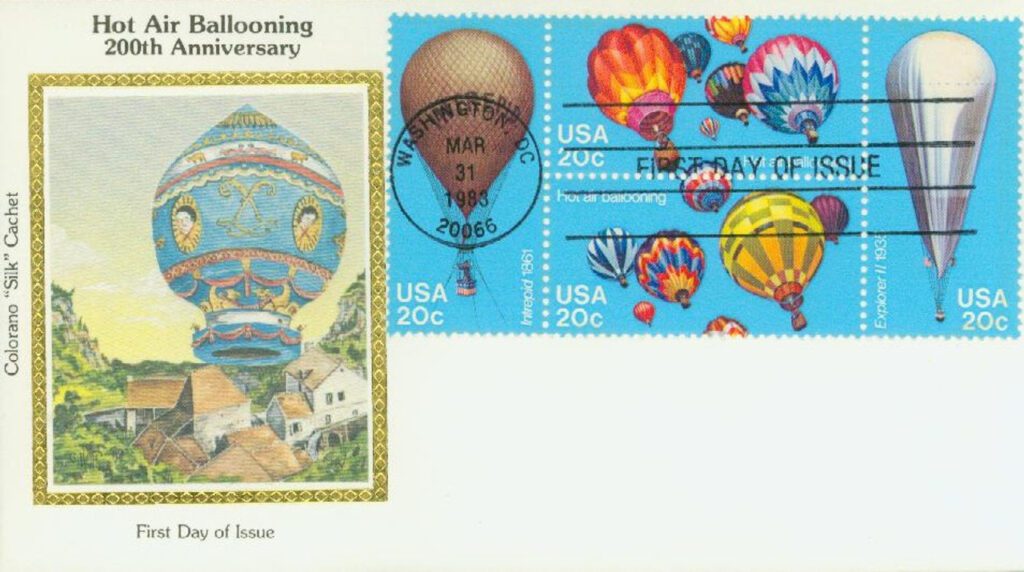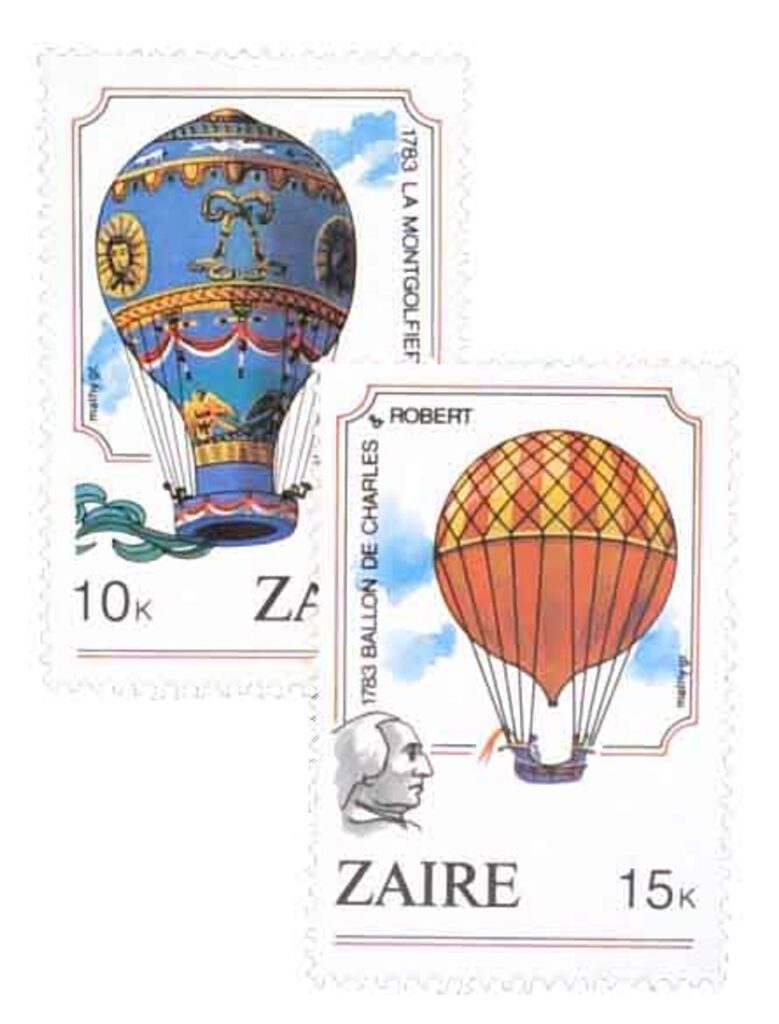On June 4, 1783, the Montgolfier brothers staged the first successful public hot air balloon demonstration, sparking interest and rapid advancements.
In 1782, Joseph Montgolfier was sitting in front of a fire when he began to wonder about the force that made the smoke and sparks rise into the night sky. He took a shirt, tied off the collar and held it above the fire. To his surprise, this force (later called Montgolfier gas) made the shirt rise.
Joseph and his brother, Étienne, had a passion for flight. They soon began experimenting in their hometown in the south of France. Their early experiments consisted of filling balloons made from paper-lined silk with hot air and watching them rise. As the experiments continued, larger balloons were used and the tests were harder to conceal.
After several failed attempts to make a bag full of hot air rise, the Montgolfier brothers gave their first public demonstration on June 4, 1783. Joseph and Étienne fashioned a balloon out of light fabric. The 28,000-cubic-foot balloon was lined with paper, coated with fireproofing, and held together with 2,000 buttons. Operating with the mistaken belief that smoke – not hot air – would cause the balloon to rise, the fire was fed with straw, wool, and old shoes. Although they didn’t understand the physics of their experiment, the balloon rose more than 3,000 feet into the air and traveled more than two miles.
The Montgolfier brothers surpassed their initial success a few months later, on September 19, 1783. As King Louis XVI and hundreds of others looked on, a balloon lifted off with a chicken, a duck, and a sheep aboard to test the effect of high altitude. That November, the Montgolfiers placed two men in a 77,692-cubic-foot balloon for the world’s first manned untethered balloon voyage. These continued successes led to the search for more efficient ways to power the balloons.
On December 1, 1783, Jacques Charles made the first flight in a hydrogen balloon. Two years after that, Jean Pierre Blanchard crossed the English Channel with co-pilot John Jeffries.
That same year, Pilâtre de Rozier attempted to mimic the Channel crossing with an experimental balloon of his own design, which consisted of a hydrogen balloon and a hot air balloon tied together. Unfortunately, the heat source was too close to the hydrogen and the balloon exploded half an hour into its flight. De Rozier did not survive the experiment.
Over 100 years later, during the 1920s, ballooning reached its pinnacle with the Graf Zeppelin. Named after its designer, Count Ferdinand von Zeppelin, the Graf (which means “Count” in German) was an aluminum-framed, lighter-than-air ship. It was 776 feet long and had a maximum diameter of 100 feet. The craft was filled with hydrogen gas, which filled 17 cells. Five Maybach motors gave it power. Flying at over 70 miles per hour, this engineering marvel was the only such airship to circle the Earth.
Balloons continued to evolve, and records for altitude and distance were constantly broken. Perhaps Austrian pilot Felix Baumgartner owns the most astonishing record. In 2012, he broke the fifty-year-old records for highest manned balloon flight and highest altitude jump. Baumgartner ascended to 127,851 feet (approximately 24 miles) then jumped from his balloon. He was the first person to break the sound barrier without any form of engine power. Felix Baumgartner landed safely in New Mexico.
Click here to view an artist’s depiction of the Montgolfier brothers’ first balloon flight.
| FREE printable This Day in History album pages Download a PDF of today’s article. Get a binder or other supplies to create your This Day in History album. |
Discover what else happened on This Day in History.






